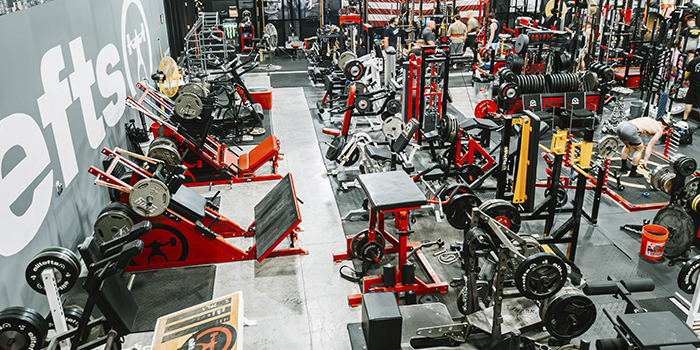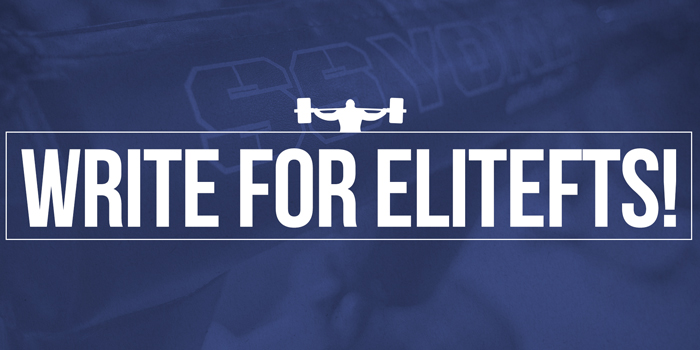
These are the ten lessons I believe every new coach, trainer, and business owner should know. In my twenty years as a strength coach, I have learned many lessons, acquired through my own experience and stubbornness. My hope is that you don’t make the same errors that I did. If you have (and you will), course correct, do better, and grow your business.
#10. Your Goals and Your Client’s Goals are Different
When I first started training, I would do everything I learned as an understudy to get clients to sign up. Then once they signed up, I would almost immediately start training them like a bodybuilder, as that was the training style I was doing at the time. Never mind the fact the client had expressed that they did not want to train that way. I was under the false premise that the client did not know what was best, and I did. I guess you could call it a “God-complex." This was a costly mistake. At one point, I had a client tell me so in a not-so-kind manner. Needless to say, that was a gut check. Remember, you are not a “God,” and if you are not careful, your clients will humble you.
#9. When Asking For Feedback, Make Sure You Can Handle It
Here is another lesson I learned that toughened me up late but, at the time, crushed me. In an effort to improve my marketing and advertising, I asked for advice on how to build a campaign. I was told I “needed a webpage, billboard, and to get listed in the yellow pages.” This was at the beginning of my career, and all those things were expensive (and still are). When I responded with, “I don’t have money for all that right now," I was told, “Well, I guess no one will ever find you.” This was devastating, especially when you are new to the business. However, I did not let that stop me. I just had to find another way.
After getting over that, I searched for a solution to my problem and found a sales book that said, “Word of mouth is the most effective form of advertising around!” Well, that is exactly what I set out to do. I got word-of-mouth advertising and still do. Now, I have a website, Instagram, Facebook, Twitter, and business cards. While the feedback initially crushed me, I flipped it to a positive to motivate improvement.
#8. Give Grace and You Will Receive It
This lesson almost slipped by me. With any job that deals with appointments, there will undoubtedly be cancellations and reschedules because life happens. Your client may get a flat, have a family emergency, or get stuck in traffic because of an accident—you never know. This has happened hundreds of times to me and, at times, upset me. I let that slip one time, and it almost cost me. When the client explained why and that they really wanted to come, they just could not make it, I immediately checked my attitude and decided to give them some grace. After all, I would have wanted the same grace. Since that incident, which was a family issue for that particular client, I have had to cash on a few “grace checks” myself over the years, and so will you.
#7. Celebrate Client Wins
Celebrate your client wins inside and outside the gym. No matter how small they may seem, remember you were a beginner at one time, too. They are looking to you for encouragement and positive vibes. You will also want to recognize their life accomplishments as well. They got a promotion, celebrate. Getting married, celebrate. Having a baby, celebrate. As long as it is positive, celebrate with them. This is important for them, and they are bringing you along for the ride. Be grateful. This is a privilege, not a right.
#6. Be Human
As trainers and coaches, we sometimes fall into the trap of not showing our human side. We want everyone to admire us and look up to us, and this can lead to the “God complex” mentioned earlier in this article. Being fit and staying fit is hard work. Eating right, training, and being a motivator are all hard, and sometimes a break is necessary. So, when your client invites you to the BBQ, go and eat what is there and meet their friends. When you get invited to their kids' wedding or graduation dinner, go and have some cake. Show them that you are human. It will pay off in the end. Your clients need to see that you can demonstrate a healthy relationship with food and are not at the gym all of the time.
One other piece of advice is, every now and then show a “gym fail." It will keep your ego in check and your clients will respect you more.
Recent: Top 55 Prowler Workouts
#5. Accept Setbacks
This lesson can be especially tough. Why? Because no one likes setbacks, be it in your training, work, or relationships. I, for one, have had a ton of setbacks, in all three areas, sometimes at the same time. This has left me reeling and feeling as though I had no purpose. I can recall a moment where my truck broke down, and I had to rebuild everything from the bottom up. I even had to get a job as a “mall cop.” So, I had to get help from friends and family because being a “solopreneur trainer” and losing your wheels means no way to get to your clients. Eventually, after a month of waiting and sending programs for them to do on their own, they go somewhere else or lose interest.
Was I upset? Yes. Depressed? Yes. However, I learned a very important lesson from this and it was exactly what the title of the paragraph says: I accepted the setback. However, I was determined not to stay set back. With hard work, persistence, faith, and a loyal few, I was able to rebuild what fell apart. So, to reiterate, the lesson here is to accept setbacks but move on.
#4. “Simplicity is the Key to Brilliance” - Bruce Lee
The above quote is credited to Bruce Lee. If you are not familiar with him, then I suggest you stop reading this now and go watch “Enter the Dragon” and then come back and finish this. Now, let’s look quickly at how this lesson plays into coaching/training. All too often, we trainers and coaches, can end up adding too many exercises to a training block in what we hope will lead to massive increases in strength and non-stop PRs. I have fallen into this trap myself by trying to show how much I think I know by overcomplicating a program when all that was needed was something simple.
Here is a quick example: I had a client who had issues with RDLs. They could not hip hinge, and I tried everything I could think of that session. After looking at a door hinge open, it hit me, “Describe a door hinge." Once I used that description, the client got it. Now, whenever I have a client that has that issue, I use that descriptor, and they usually have no further issues, and they get it. So, as you can see, “Simplicity is the key to brilliance.”
#3. Training is Holistic
Training is a holistic endeavor that many people still mistakenly think is just a chase for bigger muscles. This could not be further from the truth. As a strength coach, I constantly stress to my clients that mental muscle is just as important as physical muscle. There is a book entitled, “Think and Grow Rich." While this book is a self-improvement book, the same idea can be incorporated into your training. The story behind this lesson, and my sharing it with you, is about a client I had who played tennis.
He struggled with speed and strength, believing himself to be weak in both areas. Without going into the exact program, let’s just say after he discovered what exercises he was good at, he began to “think and grow strong.” Afterward, all he wanted to do were the exercises that he was good at, plus his attitude toward the others improved, and his confidence went through the roof. This led to better grades, being less shy around people, and a significantly better tennis game. Once you see the links in the chain when it comes to unlocking your client's potential on the mental side of training, the physical side becomes less of an obstacle. Remember, training is holistic. The mind is the strongest muscle, and when you help your clients build this, everyone wins.
#2. Do Not Ego Train
How many times have we all seen videos of people doing too much weight at the behest of their friends at the gym? If you said "yes" and then quickly realized that you have done it as well. We also know what that results in: an injury that plagues you well into your training life cycle or quitting altogether. Dave Tate calls it “Zippy Mode.”
Here is an example of why you do not want to “Ego Train” or go “Zippy Mode” while training. There was one training session where I was training a football player, and I decided I wanted to jump in. On this particular workout, he had to push the Prowler®. Well, at some point in the workout, I strained my Achilles tendon. I just tied up my shoe a bit tighter and kept pushing. While it did not completely blow out, let’s just say my sprinting days got cut short because I was training my ego.
#1. Pay It Forward
“Do unto others…”
While this is the beginning of a verse in the Bible, it falls into the pay it forward philosophy in the sense that as coaches/trainers we not only have a duty to help our clients be better, we also have a duty to help the younger coaches coming up. I know it is hard to find those trainers now who are very dedicated to the grind. However, when you do find them, take the time to help them the same way someone helped you. This helps keep the industry growing, and you produce quality coaches that can impact the industry in ways you may not be able to. We will all retire one day, and you want to make sure you have helped other coaches and trainers succeed and be the best they can be. Remember to always “Pay it forward."
Conclusion
In closing, I hope these lessons help you become a better coach to serve your athletes. At the end of the day, we are in this business to help everyone be better versions of themselves.
“Be water my friends.” —Bruce Lee
Charles Gardner has been training for over 15 years and has worked for Oakwood University, a major HBCU, for seven years as their weight room director and physical education professor. He has a Bachelors of Science, is certified as a strength coach through the ISSA, and is currently seeking his Masters in Exercise Science.











1 Comment